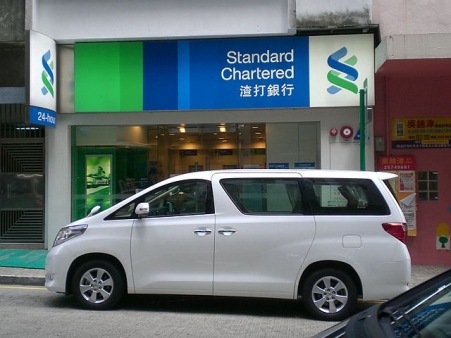
Standard Chartered's Renminbi Globalisation Index up 0.3% m/m in June
However, it's the slowest in 20 months.
Standard Chartered recently announced that the Standard Chartered Renminbi Globalisation Index, or the RGI, reached 1,888 in June, up 0.3% from the previous month and 75.8% year-on-year.
According to a release from Standard Chartered, however, growth was the slowest in 20 months, reflecting lingering effects of the Renminbi selloff and China slowdown from first-quarter 2014.
Dim Sum bonds were the only significant contributor to the index, while both trade and FX turnover detracted moderately and deposits stayed flat.
This soft-patch is expected to stay throughout third-quarter before picking up again in fourth quarter the earliest.
Here’s more from Standard Chartered:
London remains the biggest centre for cross-border Renminbi payments outside of Hong Kong.
The US is fast catching up with Singapore for second place – payments through the US more than doubled in the last four months, while those through Singapore has grown 13% in the same period.
Singapore is still the biggest centre for corporate payments, while payments through both London and the US predominantly comprise of institutional flows.
South Korea is still a relatively small centre for cross-border Renminbi flows, accounting for less than one-tenth of the flows through London.
But Renminbi deposits in South Korea rose to CNY74 billion end-June, comparable to deposits in Taiwan 12 months ago.
The 7th Offshore Renminbi Corporate Survey showed CNH activities are stabilising. 86% of overall surveyed respondents said they are using some form of offshore Renminbi products, up from 74% in January.
Comparing onshore and offshore, onshore existing users of CNH loans grew 67% compared to offshore users, which grew 21%.
The survey showed 30% of surveyed companies are currently involved in CNH loans, up from 24% six months ago.
Renminbi loans start to comprise a significant share of overall funding. This is likely a result of weakened one-way appreciation expectation for the currency and the initiation of various cross-border loan programmes.
One out of four respondents has either already established an entity in the Shanghai Free Trade Zone, or are planning to do so in the next six months.
Cross border sweeping has been the zone’s main attraction, whereby one-third of existing and potential FTZ users are already doing or planning to do it.
Two-thirds of respondents with presence in the FTZ are also already settling trades in Renminbi.
Standard Chartered launched the RGI in November 2012. Prior to adding New York, the Index covered four markets in offshore RMB business: Hong Kong, London, Singapore and Taiwan.
It measures business growth in four key areas: deposits (denoting store of wealth), Dim Sum bonds and Certificate of Deposits (as vehicles for capital raising), trade settlement and other international payments (unit of international commerce) and foreign exchange (unit of exchange).
As the Renminbi further internationalises, there is capacity to include additional parameters and markets.






















 Advertise
Advertise








